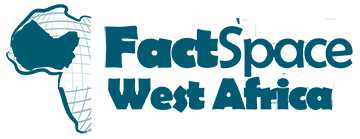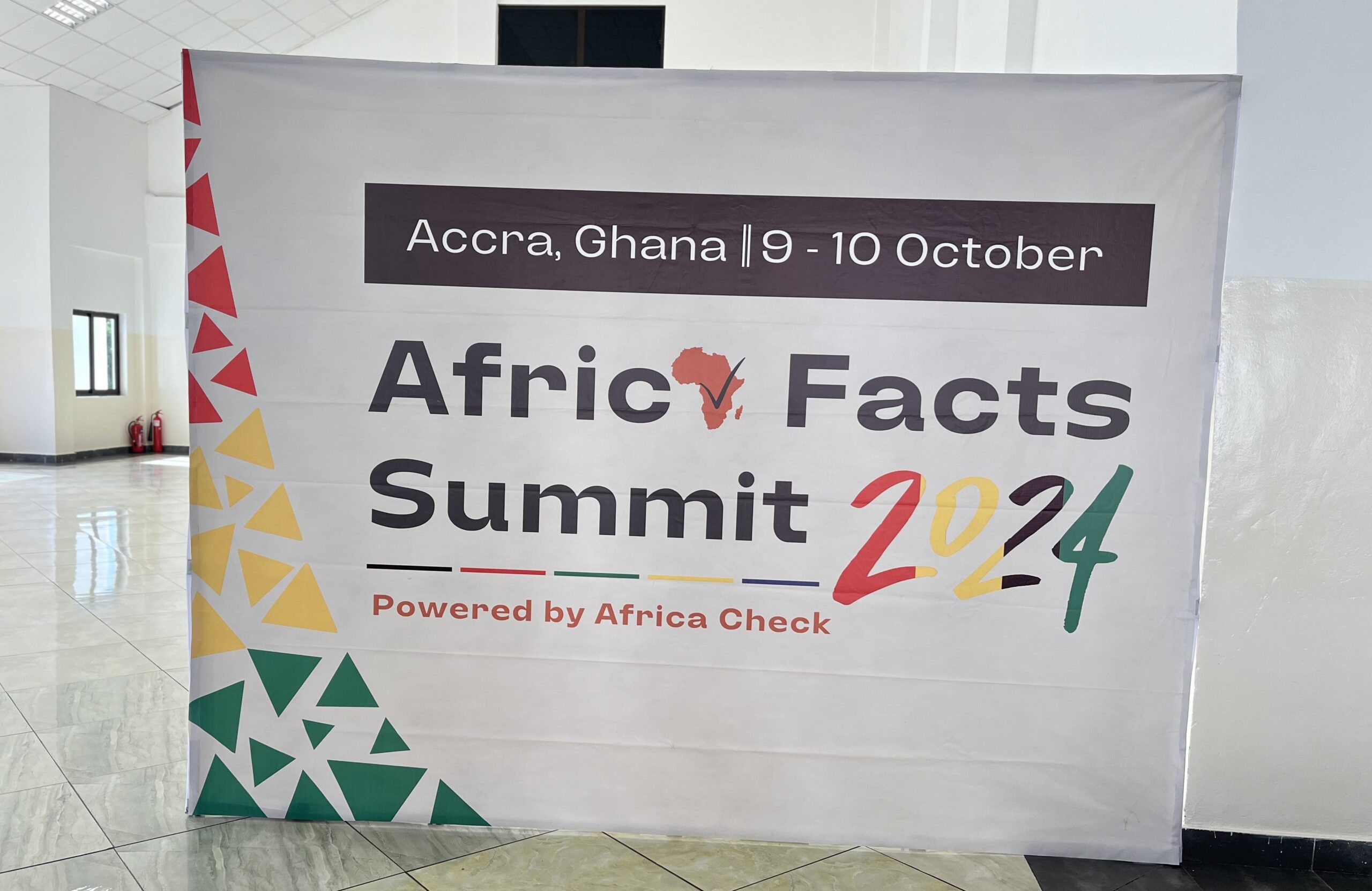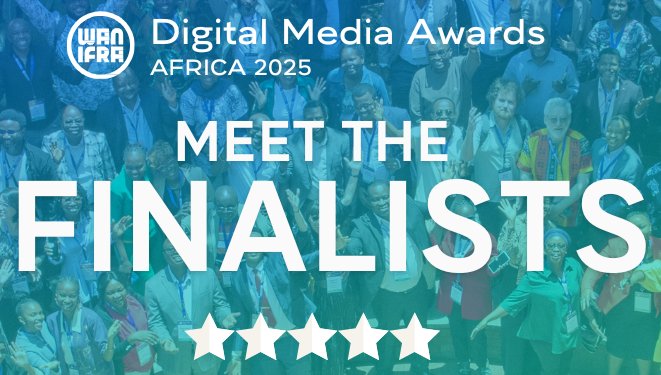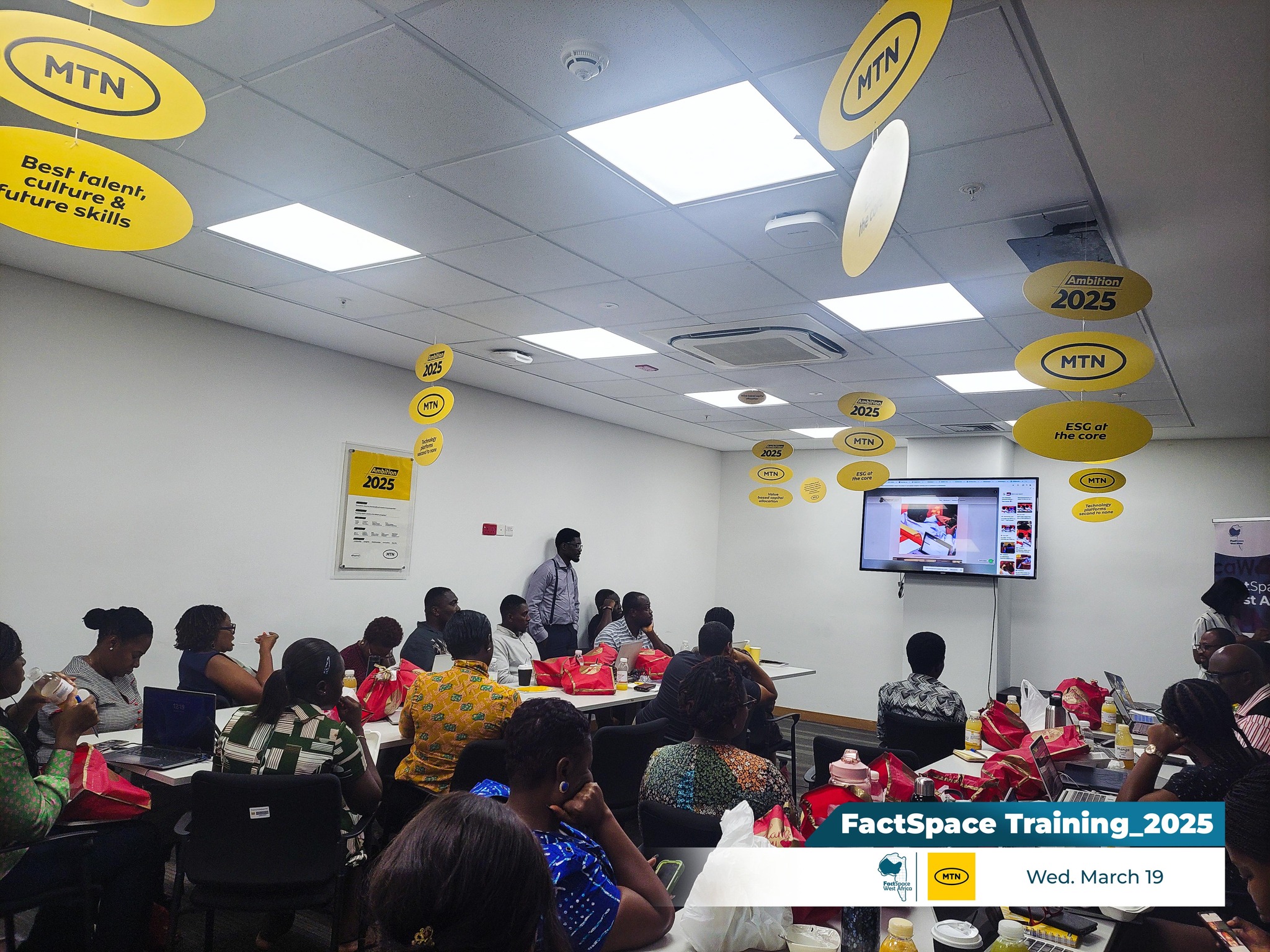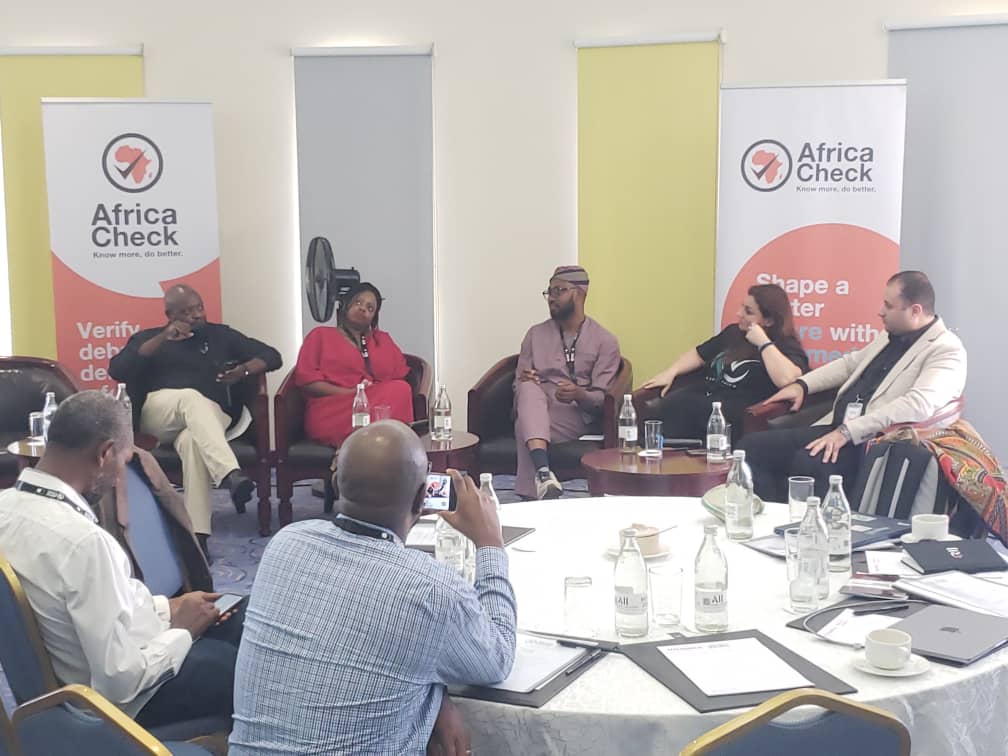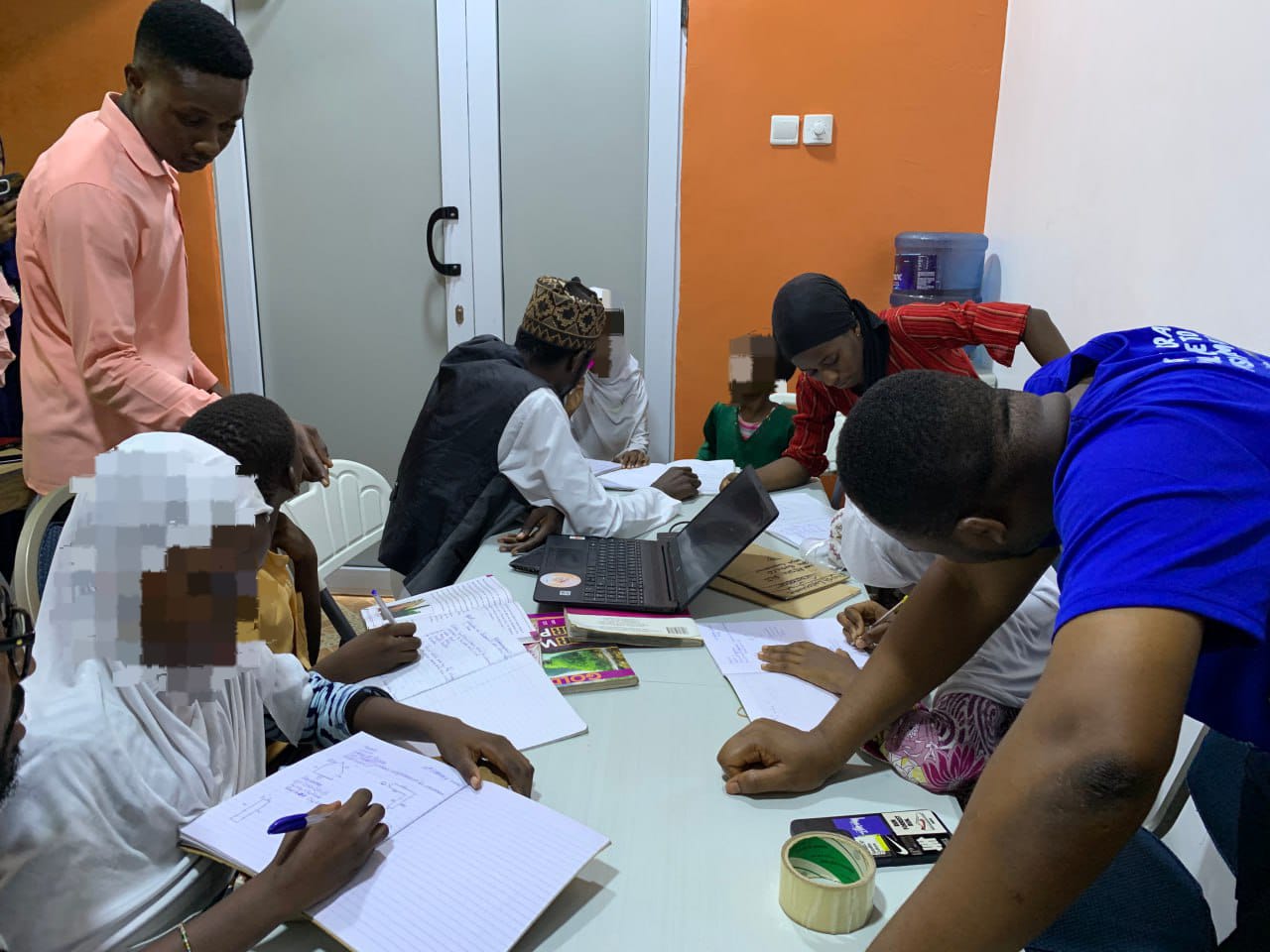FactSpace West Africa – Accra, 10.10.2024: The 2024 edition of Africa Facts Summit took place in Accra, Ghana between October 9 – 10, 2024.
The event, hosted in Ghana for the first time, was a collaboration between two major fact-checking organisations—FactSpace West Africa and Dubawa Ghana—and the Africa Check team from South Africa.
The summit pooled the expertise of digital investigators, disinformation analysts, journalists, fact-checkers, academics, and other players in the disinformation ecosystem from across Africa and beyond.
In all, 200 participants participated in two full days of deliberations at the main hall of the Cedi Conference Center of the University of Ghana. Break-out sessions also took place in four venues in the facility.
This year’s summit was held under the theme: ‘Countering Misinformation and Disinformation in Africa: Challenges, Innovations and Strategic Responses.’
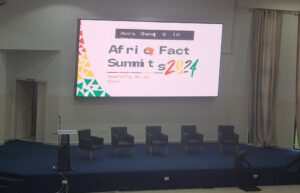
Fig 1 – Establishing shot of the main auditorium of the Cedi Conference Center, Accra
Topics treated in the breakout sessions ranged from vicarious trauma to gendered and sexualised disinformation, harnessing the power of Artificial Intelligence, leveraging Google products and use of social media etc.
Several researchers also shared their experiences and exclusive reports they have worked on.
FactSpace West Africa makes a big showing
Director of FactSpace West Africa, Rabiu Alhassan led one of the breakout sessions on the topic: ‘Mapping online activities fuelling violence: A case study of social media’s role in a conflict in Ghana.’
This presentation was premised on GhanaFact‘s report on how Facebook and TikTok contributed to fuelling the deadly Bawku conflict.
Rabiu shared insights on how GhanaFact collected and analysed data from these platforms while highlighting the tactics, techniques and procedures (TTPs) that social media users deployed from doxxing and the use of coded slurs as well as the failure of the big tech companies to act expeditiously.
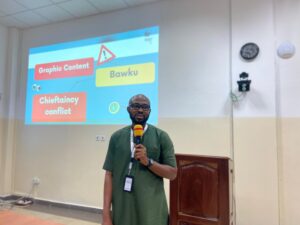
Fig 2 – FactSpace West Africa director, Rabiu Alhassan, during his presentation on Bawku conflict
On Day 2, Rabiu Alhassan again moderated a session on the topic: Fundraising to support fact-checking efforts – challenges and opportunities.
The panel shared their experiences with funding and how they have worked over the years to grow their products and the pool of possible funding partners.
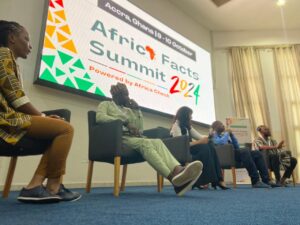
Fig 3 – Rabiu (far end) moderating a breakaway session on Day 2 of the summit
A number of participants who spoke to FactSpace West Africa expressed excitement at the summit hoping to continue engaging with other participants long after the summit.
FactSpace West Africa also signed up to the Accra Declaration as proposed by Africa Check.
The declaration saw 50 fact-checking organisations in Africa, with a presence in at least 30 countries, signing a declaration to work together to tackle harmful false information on the continent.
According to Africa Check, the declaration highlighted politically sensitive environments, vulnerable and offline communities, linguistic diversity, public distrust of the media and resource challenges as some of the areas of concern for African fact-checkers.
“For the last decade, we have been speaking about the value of honest public debate, maintaining information hygiene, and ensuring that public figures in Africa make decisions based on quality data and facts.
“Now, we have put all the ideas on paper as a first step to building – or rebuilding – information resilience and integrity on the continent,” said Noko Makgato, Africa Check’s executive director.
About the Africa Facts Summit
The summit is an annual gathering convened by Africa Check, the continent’s first non-partisan fact-checking organisation, under the auspices of the Africa Facts network.
The summit usually concludes with the highly anticipated African Fact-Checking Awards gala dinner. This is the longest-running and largest awards programme honouring fact-checking journalism in Africa.
There are three categories for the awards:
Fact-Check of the Year by a Working Journalist
Fact-Check of the Year by a Professional Fact-Checker
Fact-Check of the Year by a Student Journalist
The winners of the working journalist and professional fact-checker categories will each receive US$3,000. Runners-up will receive $1,500. The winner of the student journalist category will receive $2,000, and the runner-up $1,000.
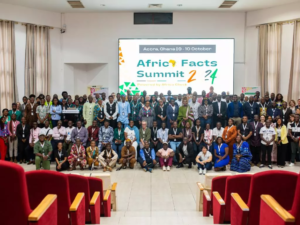
Fig 4 – Family photo taken in the Cedi Conference Center at the University of Ghana
